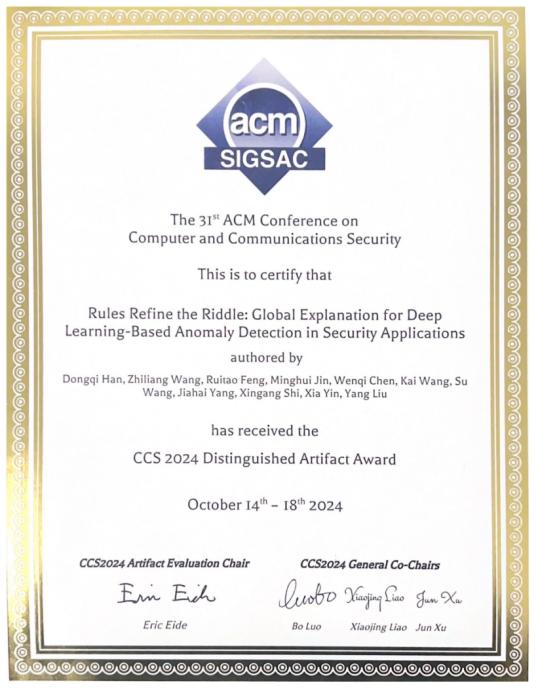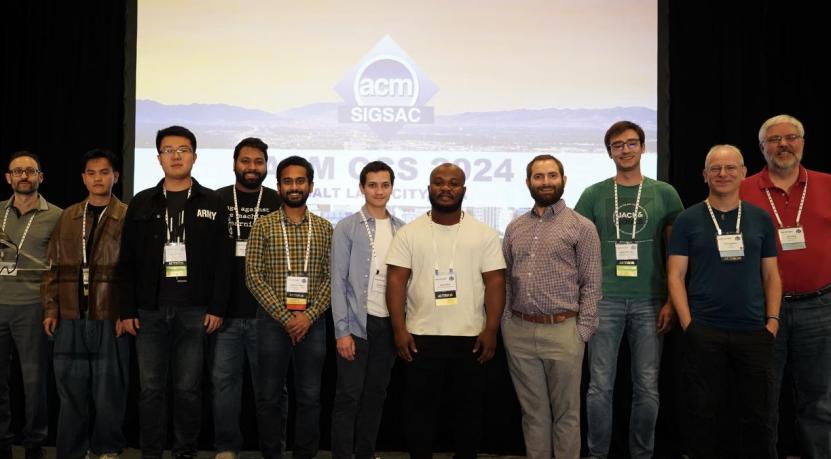From October 14 to 18, 2024, the 31st ACM Conference on Computer and Communications Security (CCS) was held in Salt Lake City, USA. The paper titled “Rules Refine the Riddle: Global Explanation for Deep Learning-Based Anomaly Detection in Security Applications”, jointly authored by Professor Yang Jiahai and Associate Professor Wang Zhiliang’s team from the Institute for Network Sciences and Cyberspace at Tsinghua University, in collaboration with Singapore Management University, Nanyang Technological University, and State Grid Shanghai Electric Power Company, received the Distinguished Artifact Award. The first author of the paper is Han Dongqi, a 2019 doctoral student at the Institute for Network Sciences and Cyberspace, and the corresponding author is Associate Professor Wang Zhiliang.

Award Certificate
The paper proposes a global explanation method, GEAD, which accurately reflects the logic of deep learning-based anomaly detection models in cybersecurity. This method extracts the knowledge of black-box deep learning models into rule sets to facilitate analysis by security experts, effectively addressing the challenge of global interpretability in deep learning algorithms for security anomaly detection. The paper also demonstrates three typical applications: comparison between expert knowledge and model knowledge, differences in implicit knowledge across different models, and deep fusion of expert knowledge and model knowledge.

Award Ceremony
ACM CCS is one of the four top-tier academic conferences (BIG4) in the field of cybersecurity. It is classified as a Class A conference by the China Computer Federation (CCF), with a history of over 30 years and significant influence in the cybersecurity community. This year, the paper acceptance rate was only 16%.
The Distinguished Artifact Award is intended to recognize high-quality research artifacts, emphasizing the importance of technological outputs associated with the paper. By evaluating the usability, functionality, and reproducibility of the artifact’s experimental results, the award promotes transparency and reproducibility in research. This marks the first time the Distinguished Artifact Award has been presented at CCS, and it is also the first time a research team from mainland China and scholars from Tsinghua University have received this type of award at a BIG4 security conference.
